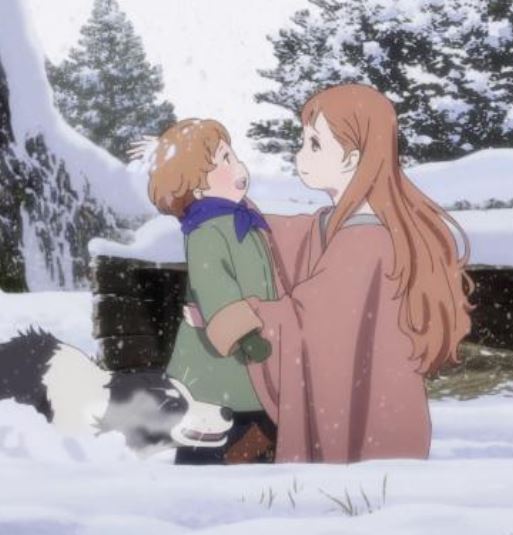At the Edinburgh Filmhouse from Tue 10 Jul 2018
The story of this Japanese anime concerns the maiden of the title, Maquia, voiced by Manaka Iwami, who lives in a sci-fi / fairytale world of two contrasting parts (rural and urban) replete with dragons and a damsel in a tower. Maquia is an Iorph, a race of blonde, slim, feminine-looking beings with only a slight hint of a nose, who never outwardly age beyond their teens.
Opening with a super-colour, blue-green idyll of animated landscape (this style of film pays great heed to the setting), the action moves slickly between this and the cityscape of shiny metal towers and darting sky pods. It is made clear from the start that loneliness will be the result of any couplings between Iorphs and others, and indeed that is what transpires: Maquia finds a human baby, raises him lovingly, he grows up but she does not, and eventually she leaves him to live his own life.
It is a tale of adolescence and motherhood, refugees, and repeated promises by Maquia not to cry (although there is also a warning: “emotions you hold inside, will burn away”). There is a central metaphor of weaving, and much is made of phrases such as “the weft of life” and “the cloth will remember”. The film is repeatedly reminiscent of the older Disney films (Cinderella, Bambi) as Maquia attempts to manipulate the emotions with its grand, orchestral scores and meaningful dialogue. Mari Okada is the screenwriter and director, and she is one of the most prolific people currently working in the anime industry today, winning the 16th Animation Kobe Award for her work.
Erial is the orphaned baby (Miyu Irino) who she prises from the grip of his mother – this instinct, they spell out, is strong even in death. As Maquia struggles with aspects of her new role (protection, responsibility, whether she can start an adult relationship at the same time as being a mum), we are reminded that this is not a childish story and the characters are not simplistic. She is severely limited, even in danger, by her eternally youthful appearance, and that in itself is a serious theme in this age of body manipulation. Maquia matures in response to both the horrors life throws at her and her “son’s” natural developmental stages, gaining much wisdom in the process.
Addressing serious subject matter using a seemingly innocent form, Maquia has the potential to stimulate both the intellect and the feelings.
